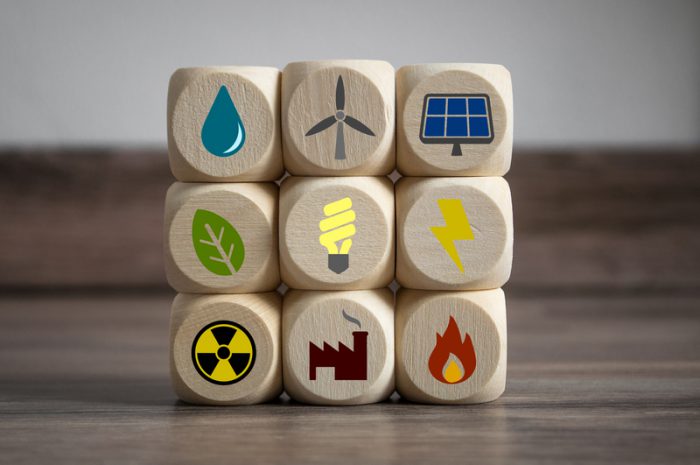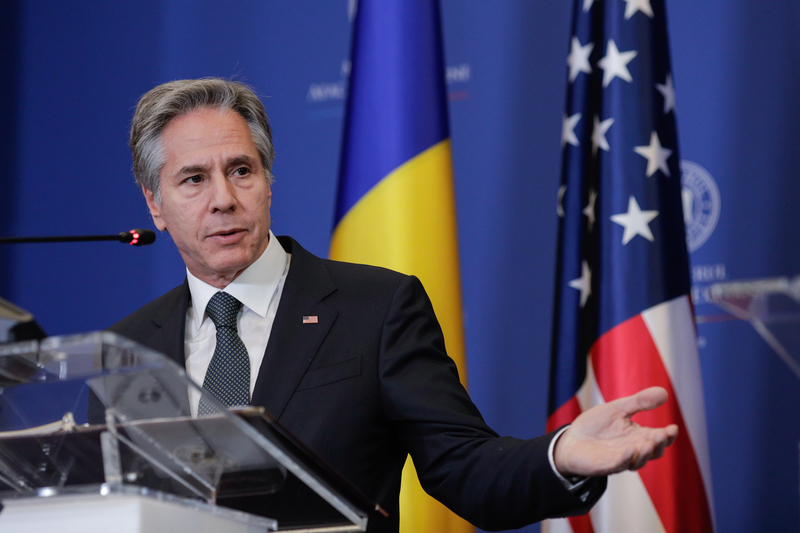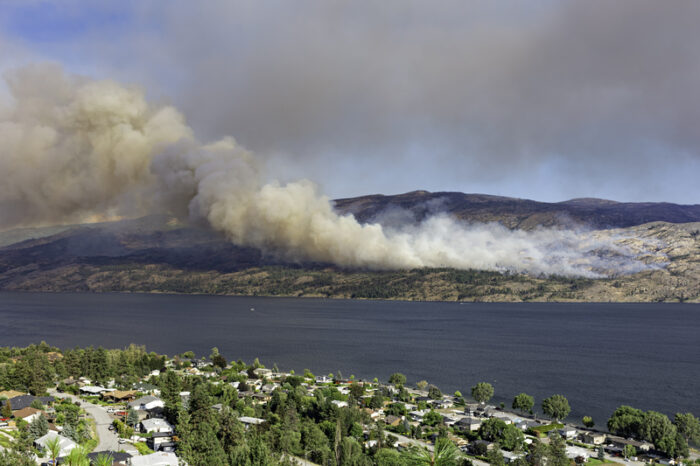Last week, the United States Congress passed a very important new bill, or set of laws. (Congress is a combination of two groups of elected officials—the House of Representatives and the Senate—that is responsible for making new laws in the U.S.)
The bill is called the Inflation Reduction Act. But it is actually full of new legislation (laws) to address climate change.
We know that climate change is a big deal to so many of our readers (and to us, too!), so we wanted to take a closer look at this bill.
How is it trying to fight the problem? Do experts think it will do enough? And will it affect Canada? (Spoiler alert: Yep!)
What do bills like this do?
The House of Representatives is one of the places where bills are made in the United States. (Getty Embed)
Bills like this one are never about just one change or one new law.
Instead, they contain dozens of related laws that are all designed to tackle a common problem. These are then presented as a group package.
So within one bill, you can have many separate laws that are each aimed at small businesses, large corporations, families, or specific industries.
What does this bill do?
Vice President Kamala Harris waves after helping to pass the Inflation Reduction Act. (Getty Embed)
It would be a lot to list all of the laws found in the Inflation Reduction Act, but here is the groundbreaking gist of it!
The bill is providing about $369 billion to help to incentivize (or encourage) different green innovations and changes.
For example, there are tax rebates (money back) for families who buy electric vehicles or make green improvements to their home (such as adding solar panels). The same goes for farmers who invest in greener technology and vehicles. This is a really big deal for people who have found these things too expensive to purchase in the past.
There will also be more money available to help new green tech and energy businesses to get their start. In other words, if you want to start a new green business, the government will help fund it. (One company that has benefitted big time from an earlier, smaller climate bill passed by former president Obama is electric car giant Tesla.)
And the bill has a number of proposals to make sure that the parts used to build new green tech and vehicles come from North America. This change is designed to make sure that these changes also bring lots of new jobs to both the United States and its closest ally, Canada.
Are environmental activists happy?
Critics were disappointed that the bill did not do a better job of restricting fossil fuel projects like offshore oil drilling. (Getty Embed)
Yes and no.
This is easily the biggest climate bill ever passed in U.S. history. If the bill is used well, it could bring the United States much closer to the targets that were set out in the Paris Agreement. This was a global climate bill signed by 195 countries in 2016 to pledge to reduce greenhouse gas emissions by 50 percent by 2030, and to stop them completely by 2050.
(The U.S. joined the Paris Agreement under President Obama, before President Trump left it the next year. Current president Joe Biden then rejoined the agreement in 2021.)
But experts warn that is just the start of what is needed. "Everyone needs to realize that this must only be the beginning of a series of climate packages designed to make up for decades of climate inaction," Kim Cobb, climate scientist at Brown University recently told Scientific American.
Many experts complain that the bill makes it too easy for oil and gas companies (which produce huge amounts of carbon and other greenhouse gases) to still stay active, or even start brand new projects. They feel that until these industries are shut down, carbon emissions will continue to be a huge problem.
But overall, it is an important step. As Marshall Shepherd, a professor at the University of Georgia put it: "This finally gets us over the 'spinning our wheels' stage. We know what to do—now let’s do it."
What does it mean for Canada and the rest of the world?
If electric vehicles become cheaper, that can help businesses in both the United States and Canada. (Getty Embed)
In one way, the United States is just one of those 195 countries that signed the Paris Agreement.
But it is also one of the biggest economies in the world ... and one of the biggest polluters. When it makes a big change, that affects tons of other businesses and countries. It also helps to raise the bar, or standards, for what everyone else is doing.
There are ways that the Inflation Reduction Act is doing far more to address climate change than any Canadian policy. As Eddy Perez of Climate Action Network Canada put it in an interview with CBC Radio, "We're now seeing the U.S. Congress providing support for renewable energy ... in ways that we haven't seen (in Canada) historically."
And because Canada and the U.S. do so much business together, this support should have a big positive effect on Canadian jobs, too.
For example, if the United States invests more in building electric cars (and making them more affordable for families), Canadian businesses that help build these cars will also do much better.
Why is it called the Inflation Reduction Act?
Congress argues that its new bill will make it more affordable to live and fight climate change at the same time. (Getty Embed)
Of course, there is still one big question that we're going to end with. (And it actually highlights a super interesting connection!)
What is up with that name?
Inflation is an economic term that refers to the rising cost of, well, everything—from food to clothing to electronics to gas. Put together, the cost of these things are often referred to as 'cost of living'.
Over time, inflation is pretty much always rising. (This is why adults will constantly moan about how, "When I was a kid, a scoop of caramel ripple was only a $1.25!" when you go out for ice cream.) But sometimes, inflation increases very quickly. So quickly that people find it difficult to afford the things that they need.
So far, 2022 has seen a lot of inflation across the globe. Obviously, this is a problem that people want to see their governments address!
Many ways to approach a problem
This brand new floating solar farm near Aberdeen, North Carolina is the largest of its kind in the United States. It is an example of the new energy tech that this bill wants to support. (Getty Embed)
Getting back to the name 'Inflation Reduction Act', what the U.S. Congress is saying is that this new bill is more than a climate change bill. And this is true in a couple ways.
First, it is not just a climate change bill. It has other measures in it, like ones to lower the cost of prescription medication. It is also raising taxes on ultra-rich companies (those making more than $1 billion a year), which will give the government money that can be used to provide better services to the public. (The services that governments provide to people include schools, roads, medical assistance, and more.)
Cheaper medication and better social services can make life easier for many people.
But this is mostly a climate bill. And it is purposely using new green solutions to try to fix cost of living expenses.
These solutions include providing new jobs in green industry. Or making it easier for people to afford money-saving green tech and vehicles. Or lowering energy and fuel bills by creating new locally-made green power, instead of getting it from outside the country (this is known as energy independence).
Will it work? Well, that is the big question, right? But by calling it the Inflation Reduction Act, the U.S. government is making a connection that climate activists have pointed to for decades. That if you do it properly, switching to greener technology and habits can actually save people money, not cost them.
 Helping the U.S. make a switch to greener energy options is just one part of what this new bill is about. (ID 131536296 © Mauriceschuckart | Dreamstime.com)
Helping the U.S. make a switch to greener energy options is just one part of what this new bill is about. (ID 131536296 © Mauriceschuckart | Dreamstime.com)









